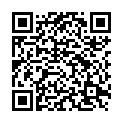|
|
|
| Module code: WINF-B23-160 |
|
|
2V+2U (4 hours per week) |
|
5 |
| Semester: 1 |
| Mandatory course: yes |
Language of instruction:
German |
Assessment:
Exam
[updated 15.04.2024]
|
WIB21-510 (P450-0282) Industrial Engineering, Bachelor, ASPO 01.10.2021
, semester 5, mandatory course
WINF-B23-160 (P460-0006) Digital Business and IT, Bachelor, SO 01.10.2023
, semester 1, mandatory course
WINF-B25-150 (P460-0006) Digital Business and IT, Bachelor, SO 01.10.2025
, semester 1, mandatory course
|
60 class hours (= 45 clock hours) over a 15-week period.
The total student study time is 150 hours (equivalent to 5 ECTS credits).
There are therefore 105 hours available for class preparation and follow-up work and exam preparation.
|
Recommended prerequisites (modules):
None.
|
Recommended as prerequisite for:
|
Module coordinator:
Prof. Dr. Thomas Tinnefeld |
Lecturer: Prof. Dr. Thomas Tinnefeld
[updated 24.07.2023]
|
Learning outcomes:
After successfully completing this module, students will:
Be able to apply advanced reading comprehension techniques in order to read longer written texts in a foreign language with economic and technical content and to decode the points of view expressed therein - with regard to both global and detailed comprehension.
Have acquired business and technical vocabulary and be able to use it productively in their own spoken and written texts, including writing emails, letters of complaint, business reports and proposals.
Be able to deal in-depth with the intercultural characteristics of the target language countries and to apply the acquired intercultural awareness to a considerable range of concrete situations in encounters with representatives of these cultures and to implement them adequately in terms of communication.
Be able to intellectually analyze relevant spoken and written business English texts and independently understand concrete examples of these.
[updated 15.04.2024]
|
Module content:
The content includes:
Business-related skills relevant to working life, e.g:
◦ Business etiquette and business travel
◦ Intercultural communication
◦ Making telephone calls
◦ Behavior in meetings
◦ Preparation and negotiating
Technical matters, e.g:
◦ Linguistic behavior in production and operation
◦ Material technology
◦ Assessment of energy sources and their sustainability
◦ Technology and innovations
Writing skills: Creation of, for example:
◦ E-mail correspondence
◦ Letters of complaint
◦ Annual reports
◦ Minutes of meetings
Practicing presentation techniques
Teaching vocabulary for the above-mentioned areas
Expanding students´ command of grammar and, if necessary, repeating areas where improvement is required
[updated 15.04.2024]
|
Teaching methods/Media:
Partner work
Group work phases where students tackle specific tasks
Interactive, multimedia language lab
Short talks by the students
Using artificial intelligence as a learning partner
[updated 15.04.2024]
|
Recommended or required reading:
Recommended literature will be announced at the beginning of the semester.
[updated 15.04.2024]
|

